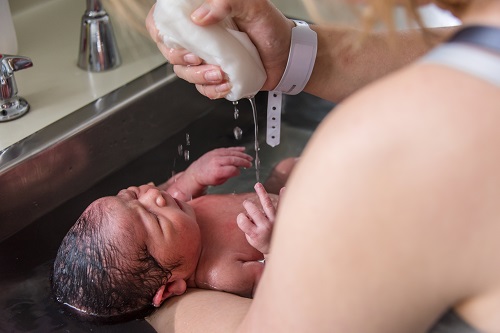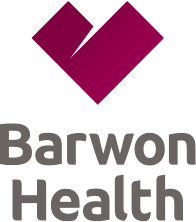Changing & bathing your baby
It will be helpful for you to have a designated area for changing your baby. This will help by having all of the things you need to change nappies and dress baby at your fingertips.
Never leave your baby unattended during changing.
Make sure that the area you select for changing your baby is the right height for you.
Babies do not need to be bathed every day however it is imperative to ensure that your babies hands, face and nappy area are clean. Soaps can be very drying on your babies skin so if you decide to use soap just use a little.

Bathing is a lovely time for enabling your baby to relax and enjoy spending time with you.
When bathing your baby:
- Ensure the room you will be bathing the baby in is not cold
- Position the bath in a safe place
- Ensure the bath is positioned at a suitable height to protect your back from bending over for a considerable length of time
- Collect everything that you need before you start
- When filling the bath add the cold water first and then the hot
- Test the temperature of the water with your inner wrist. The water should feel neither hot or cold
- Bathing can be combined with baby massage to sooth and relax your baby.
Nappies must be changed regularly and babies must never be left in a wet/soiled nappy.
Babies skin is very delicate. Sometimes babies may experience a sore bottom or nappy rash. Their skin may appear red, wrinkly or shiny. If the rash is nastier there may be blisters, pustules, and the area may be raw and moist.
- Most nappy rashes will improve quickly with more frequent nappy changes
- Use a wet cloth or cotton or alcohol free wipes to clean the babies bottom at every nappy change.
- When using cloth nappies use nappy liners.
- Leave the babies nappy off for a few minutes several times each day to allow the skin to dry.
- Use a barrier cream to protect the skin.
- If the rash does not improve within 1-2 days consult your Maternal Child Health Nurse or family doctor.
Last Modified: Wednesday, 12 June 2019
